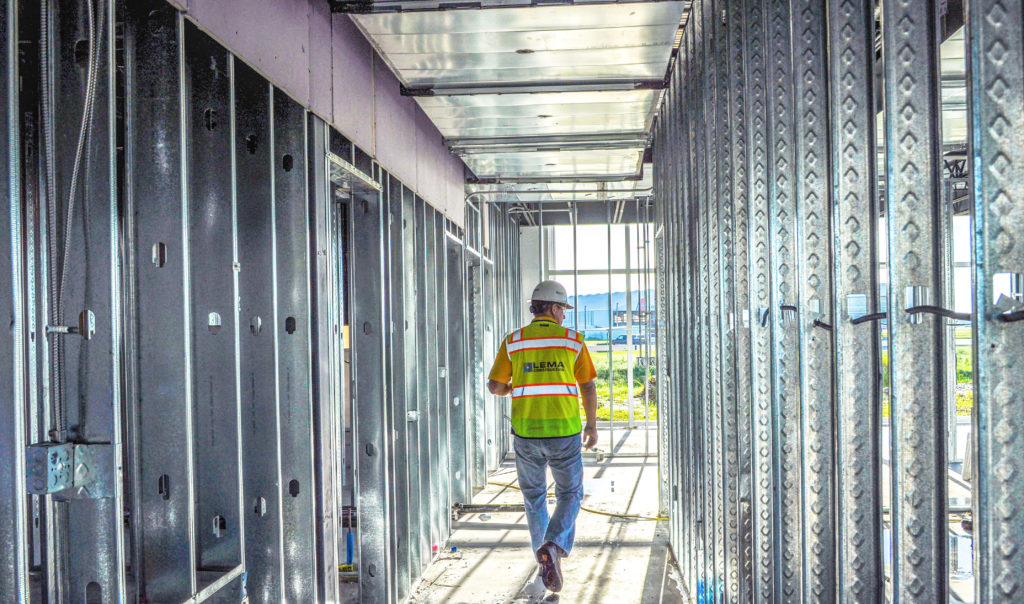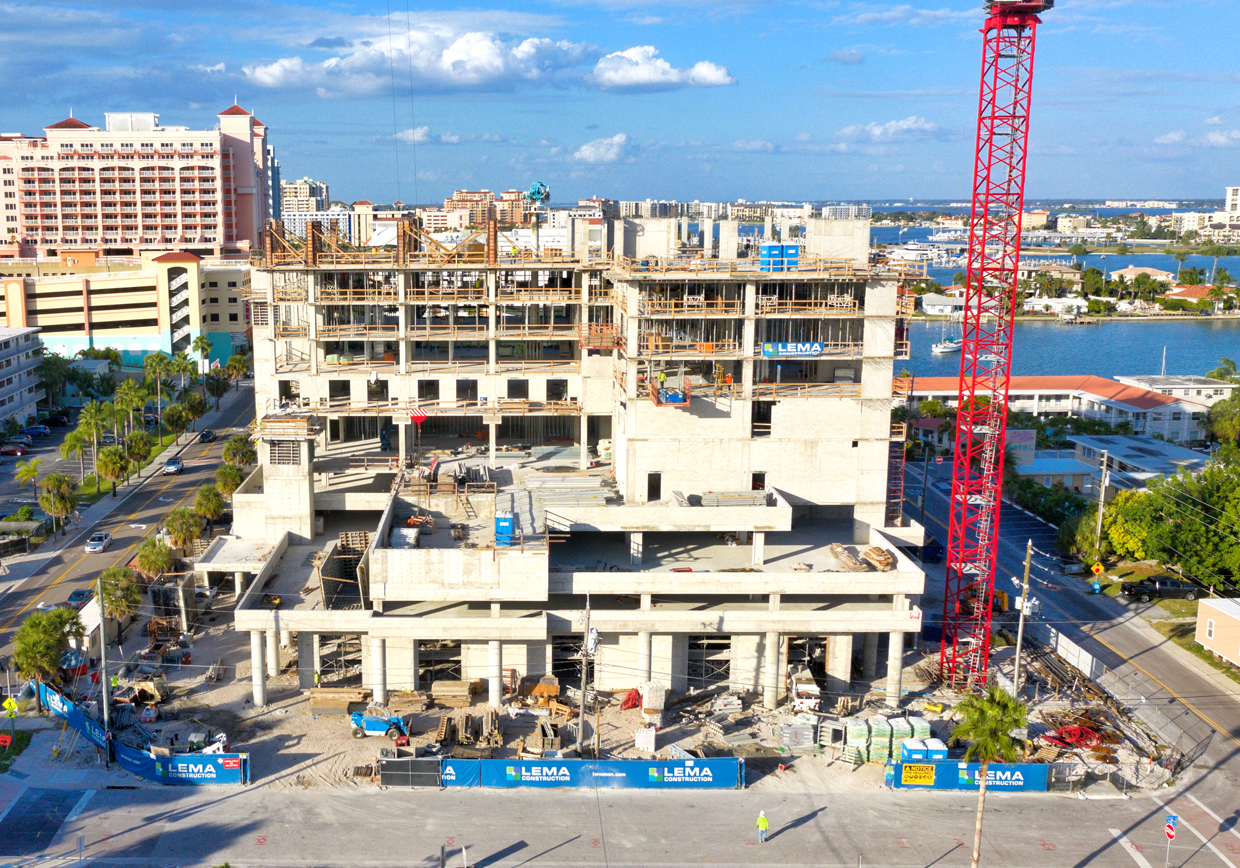Everyone should know what their role is
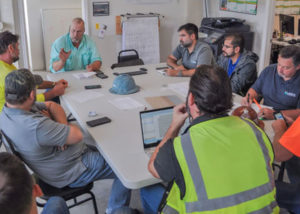 From project managers down to construction workers, everyone should be aware of their roles. It’s a hierarchical structure: one mistake somewhere high on the chart will cause serious damage to the project. So, how do you make this happen? You can get all the major players involved in your project together. Talk to them about the planned work and see if everyone’s well informed. They’ll take it from there and talk to their subordinates. That way, you’ll make sure everyone knows what to do when the time comes (when construction is underway). I guess you’ve by now figured out that time is the most important word of this article.
From project managers down to construction workers, everyone should be aware of their roles. It’s a hierarchical structure: one mistake somewhere high on the chart will cause serious damage to the project. So, how do you make this happen? You can get all the major players involved in your project together. Talk to them about the planned work and see if everyone’s well informed. They’ll take it from there and talk to their subordinates. That way, you’ll make sure everyone knows what to do when the time comes (when construction is underway). I guess you’ve by now figured out that time is the most important word of this article.
Notify and schedule contractors ahead of time
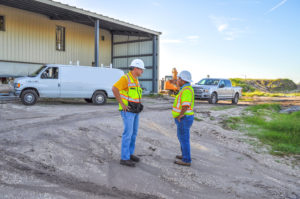 Try to schedule contractors far in advance and avoid contacting them at the very last minute. It’s not like they’ll probably have other work to do or something. Sorry for that plain old irony, but really: making sure everything’s ready long before the construction starts. The key to success always lies in a good organization, and by planning ahead of time, you’ll know you’re doing the best you can to avoid common construction schedule setbacks.
Try to schedule contractors far in advance and avoid contacting them at the very last minute. It’s not like they’ll probably have other work to do or something. Sorry for that plain old irony, but really: making sure everything’s ready long before the construction starts. The key to success always lies in a good organization, and by planning ahead of time, you’ll know you’re doing the best you can to avoid common construction schedule setbacks.
Is there a more critical task than planning?
Well, the answer to the question proposed in the title is a tricky one. It doesn’t have to be one-sided, but a big NO pops up when one thoroughly thinks about it. You must have a detailed plan about what’s happening, where or when it’s happening, and who’s involved? It might be best if you use project planning software. Talk to your IT team and see if they can scan the e-market for some tools that can help you plan easily. As you can imagine, the pen-and-paper solution is a bit outdated, but it’s good to have it in reserve.
Hire the best people in the business
 Finding the right people for a particular task is evidently one of the reasons why managing a project can be a real struggle. Irresponsible contractors are the worst thing that can happen to you. Real professionals shouldn’t cause a delay of any sort. That’s why you’ll need to scan the market to find the best option available. For example, if you need an experienced moving crew to handle some of the materials or move the family out of the house while the works are underway, talk to other folks in the construction business and see what they say. They’ll most certainly help you find the right kind of crew. It’s very important you hire reliable people for the job. Never underestimate the value of professionals.
Finding the right people for a particular task is evidently one of the reasons why managing a project can be a real struggle. Irresponsible contractors are the worst thing that can happen to you. Real professionals shouldn’t cause a delay of any sort. That’s why you’ll need to scan the market to find the best option available. For example, if you need an experienced moving crew to handle some of the materials or move the family out of the house while the works are underway, talk to other folks in the construction business and see what they say. They’ll most certainly help you find the right kind of crew. It’s very important you hire reliable people for the job. Never underestimate the value of professionals.
Communication is gold
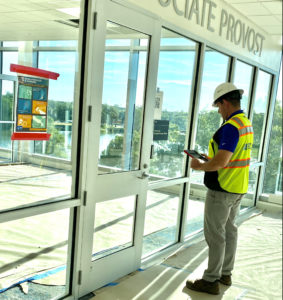 Try to make sure communication among teams is top-notch and that there aren’t any issues with it. Communication canals should be open all the time so that teams can coordinate work. As it is in every aspect of life, communication is gold. Whether you’re planning a cross-country trip with your friends, trying to repair your marriage (sorry for mentioning that), or trying to start the project on time – it really doesn’t matter. Without the normal flow of information between parties, you’re in for some trouble. A whole list of really unnecessary problems occurs due to poor communication. It’s a recipe for disaster.
Try to make sure communication among teams is top-notch and that there aren’t any issues with it. Communication canals should be open all the time so that teams can coordinate work. As it is in every aspect of life, communication is gold. Whether you’re planning a cross-country trip with your friends, trying to repair your marriage (sorry for mentioning that), or trying to start the project on time – it really doesn’t matter. Without the normal flow of information between parties, you’re in for some trouble. A whole list of really unnecessary problems occurs due to poor communication. It’s a recipe for disaster.
Let’s talk about responsibility
There’s a way to determine whose responsibility it is when a delay occurs. Firstly, let’s mention that we have two kinds of delays: the excusable ones and, of course, the inexcusable ones. A contractor’s fault mostly causes the latter ones, and they can be sanctioned according to the contract. Excusable delays are ones contractors didn’t have any control over. What happens in case of an inexcusable delay is just between the parties that signed the contract. By signing an agreement on the terms of service, you’ll be sure that if an inexcusable delay occurs, there will be some consequences. That might be something the contractors will most likely want to avoid.
In conclusion
That was it for today. Hopefully, this text has helped you eliminate some issues you’re used to. But let’s do a quick walkthrough. As we’ve mentioned early in the article: make sure everyone knows what part of the job is theirs. It is probably the most important thing when trying to avoid common construction schedule setbacks. Bringing all the major players together to talk about their duties is the best option you can find. Notify your contractors way ahead of time so that you don’t do everything at the last minute. Find some good project planning software to work with. Scan the market for the best people available. Communication between parties should be open all the time and undisturbed. Last but not least, making up a good contract which will in detail explain who’s responsible for the delay is something you need to pay attention to. That way, you’ll know companies you’ve hired will do their part. Or else!
